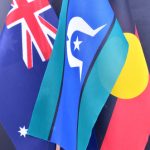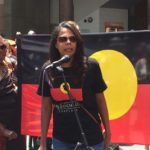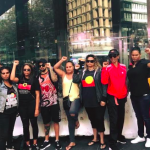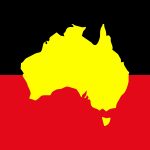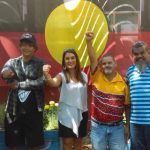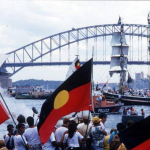Recognition Is a Diversion From Treaty: An Interview With Lidia Thorpe
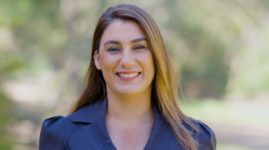
Recently appointed Indigenous affairs minister Ken Wyatt announced at the National Press Club on 10 July that he’s proposing the country hold a referendum on constitutional change for First Nations peoples during the current parliamentary term.
The debate around constitutional change encompasses two concepts: recognition and a voice to parliament. The former involves recognising Aboriginal and Torres Strait Islander peoples in a preamble to the Constitution, as well as the removal of race specific provisions in the document.
The voice to parliament was proposed by First Nations delegates in the May 2017 Uluru Statement from the Heart. It involves a constitutionally-enshrined Indigenous representative body that would advise parliament.
Mr Wyatt said the Morrison government has set aside $7.3 million to co-design a referendum on constitutional recognition specifically. And he seemed to suggest that while a form of voice could be established, it wouldn’t be embodied in the Constitution.
Treaty should be the agenda
A community-driven June 2015 IndigenousX survey found that 75 percent of First Nations respondents didn’t support constitutional recognition. Indeed, 50 percent said they’d vote no to such a referendum, even if the removal of racist sections of the Constitution was entailed.
And the Indigenous delegates from across the country who made up the Referendum Council at the mid-2017 Uluru Summit rejected constitutional recognition, in favour of the establishment of the voice to parliament.
Gunnai-Kurnai and Gunditjmara woman Lidia Thorpe was amongst a group of delegates that walked out of the summit, asserting it was a flawed process. Ms Thorpe and the rest of the walkout group rejected recognition and called for the establishment of a sovereign treaty.
Treaty would involve government entering into formal agreements with First Nations that would confirm Indigenous sovereignty, land rights and custodianship. Indigenous leaders have long called for one. Australia is the only Commonwealth nation not to have entered into such a treaty.
The path forward
When it comes to treaty, Mr Wyatt said, states and territories should take the lead. Then he asserted that the Noongar Native Title Settlement is an example of treaty in its true sense. However, it’s not a treaty at all. It’s a series of land use agreements that see Indigenous rights extinguished for money.
The Hawke government promised to negotiate a treaty. And although it never happened, the implication is that the federal government could be focused on entering into treaty negotiations, similar to what’s underway in the state of Victoria.
Sydney Criminal Lawyers spoke with First People activist and former Victorian Greens MP Lidia Thorpe about why a process of treaty-making is the way forward, her rejection of both forms of constitutional change and how the treaty process is going in Victoria.
Firstly, Ken Wyatt announced that he’ll been pushing for a referendum on constitutional change. The national debate around it encompasses two forms of change: recognition and a voice to parliament.
The latter was proposed by some of the Indigenous delegates at the Uluru Summit. And despite the debate having moved to focus on the voice over the last two years, the minister doesn’t seem to be proposing the referendum be about that.
Ms Thorpe, you’ve rejected the voice proposal since it was first put forth. Why is that?
The meeting itself at Yulara – not at Uluru – was an invite only process, where corporations and organisations had invitations to attend the Dialogues. And from the Dialogues, a vote took place to put up 10 people to attend the so-called Uluru meeting.
That meant that a lot of grassroots people from around the country didn’t have the opportunity to voice their descent to constitutional recognition, or even participate in the discussions. There was also a block out of any independent media or recordings of those meetings.
It was their agenda the whole time. Anybody that didn’t follow that agenda was quickly shut down in terms of putting an alternative view forward.
I rejected the statement based on the fact that at the meeting there weren’t adequate interpreters to enable our people whose English was third or fourth language.
Also, tribal punishment was threatened to those that did speak out against the agenda that was set. That was towards myself and a few others from the walkout group, who had to sleep in the middle of the desert that night. We weren’t allowed back to our hotel rooms.
That upset many people, particularly lawmen of that country, who were given a false account of what we were standing up for and against.
And when that was interpreted to those lawmen, that tribal punishment was quickly shut down. And we were told the threat was inappropriate, and in fact, breaking the law of that land.
So, there was a separate meeting of just a few delegates that produced the statement?
It was the main meeting, but the agenda was certainly set before anybody got to that meeting, if you look back prior to where Noel Pearson and Warren Mundine launched their Uphold and Recognise organisation with a booklet.
I attended that discussion at the Melbourne Law School. And the agenda that was being talked about then, was exactly the agenda that was put to the Uluru meeting.
There was no information provided to delegates that attended the meeting around constitutional recognition or treaty, and how it affects our sovereignty. Therefore, in terms of our rights as the First People of this country, there was no free and informed prior consent.
It was an agenda that people were encouraged to support. And at the end of the day, people signed a blank canvas. The words weren’t finalised until after the fact. And a voice to parliament wasn’t talked about. It was about constitutional recognition.
I don’t believe in constitutional recognition before a treaty. We’re living in an unsettled country. There has never been an agreement between the First People and the colonisers. And to unite this nation, we need a comprehensive conversation around treaty.
Given the Australian Constitution is seen as illegitimate by our people, constitutional recognition is not the first step. It’s about settling this country through a proper treaty process, and constitutional recognition being part of that negotiation.
Back in January, mining giants BHP and Rio Tinto spoke out in support of establishing the voice to parliament. First Nations affairs have never been a priority of mining companies. What do you think this development can be put down to?
That’s an immediate red flag for many of our people. When you have mining companies that have done nothing but destroy our land and people for decades coming out in support, then going into the Constitution is about assimilation.
It’s about the final solution, if you like, to have the First People of this country as what they are calling “Indigenous Australians”.
It’s what we’ve resisted for 230 years. And it would work in favour of many of these mining companies, in that, there will be more power for the government to govern us.
Mr Wyatt said the Morrison government has put aside funds to hold a referendum specifically on constitutional recognition. Why is recognition an inadequate way to move forward?
Going into an illegal constitution, or an illegitimate one, is ceding our sovereignty. We’ve maintained our sovereignty since invasion and colonisation. And this government is looking for a way that it can have ultimate power over us. And going into that constitution will certainly give them that.
Our people have been calling for treaty for decades. And we need to revisit that. And have a comprehensive consultation around the country, like they did 20 years ago with the Reconciliation Movement.
John Howard put resources to the most comprehensive consultation this country has ever seen with First People. That went to every community, both black and white, around this nation.
That’s what we need to be spending our time and resources on: getting feedback from every community. The grassroots people that I’m talking to, we’re planning a “No” campaign. Not so much as activists, but as grassroots people who want to pursue a treaty and a conversation around that.
We need to look at real change. We don’t need to go to a referendum to have a treaty. It is something that can be legislated for. And it’s a way that our people can self-determine what their priorities are for each of their communities. We are not one homogenised group that all think and speak the same.
We all have different needs. We’ve all been colonised at different times in this nation’s history. Our needs are different. And that’s a conversation that we need to have.
A treaty can give us designated seats. A treaty can give us wealth and power. And it gives a real voice to those communities that most need it.
Politicians have been well-aware of calls for treaty for decades now. Is constitutional recognition a way around dealing with treaty?
Absolutely. It’s a way to divert the attention away from treaty. And it’s a quick fix for the government to deal with us.
When the Reconciliation Movement was happening, treaty was the priority. Constitutional recognition was down the list. People wanted to go down the path of treaty. And over the last 20 years, that has changed in priority.
My mother sat on the Reconciliation Council back then, with Patrick Dodson and Linda Burney. And the priority was treaty, not constitutional recognition.
Constitutional recognition has come from Noel Pearson. And it’s been reworded to suit the conservatives of this country, not the First People.
The NAIDOC theme this year is “Voice, Treaty, Truth”. Regarding the truth aspect, how would you say it’s lacking in this national debate?
It’s lacking and it’s one of the most important aspects of treaty. Let’s talk about what’s happened in this country. We know that this country has a shady past. We’re not going to hold individuals responsible. We want this nation to acknowledge that and look at ways to move on from it.
Treaty will address a lot of that. It can talk about reparations. It’s not about money. It is about our rights as First People in this country with connections back to our land, our language and everything that we have practiced for thousands of generations.
Truth-telling is fundamental in healing this nation’s wounds and uniting people.
And lastly, Ms Thorpe, the state of Victoria is going through a treaty process at the moment, which you helped instigate as a member of parliament. The council representing First Nations clans during the process is about to be voted on.
How is the treaty process going in Victoria? And how adequate is it?
It’s not great. It was up to the Greens to pass that legislation, because we had the balance of power in the upper house.
And it wasn’t an easy decision to make, because one of the first things that came out of that negotiation was that the state government would not acknowledge that we are the sovereign people of the land.
A real treaty is between two sovereigns. And when you have a state government that doesn’t acknowledge that we are sovereign, then we are starting off on the wrong foot.
They’ve also gone through a process of choosing 12 nations of 38 to have reserved seating, because those 12 nations are recognised by government process, such as the Cultural Heritage Act. Each of those 12 nations have Registered Aboriginal Party status, which automatically gave them reserved seating.
This means that the remainder of First Nations – who have either chosen not to participate in those government processes and become a Registered Aboriginal Party, or have been rejected from those processes – don’t have reserved seating and they’ve been asked to participate in an Aboriginal election as individuals to fight for a seat at the table.
Any real treaty discussion needs to ensure that it has all nations represented at the table, otherwise, what are we talking about?


